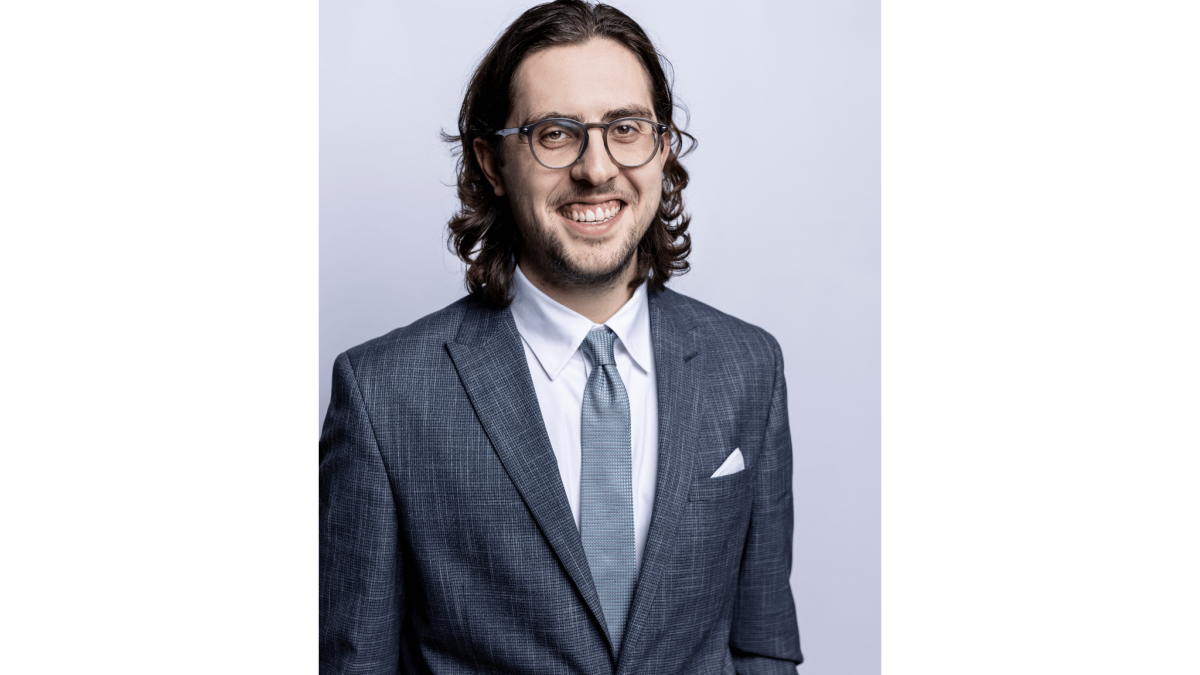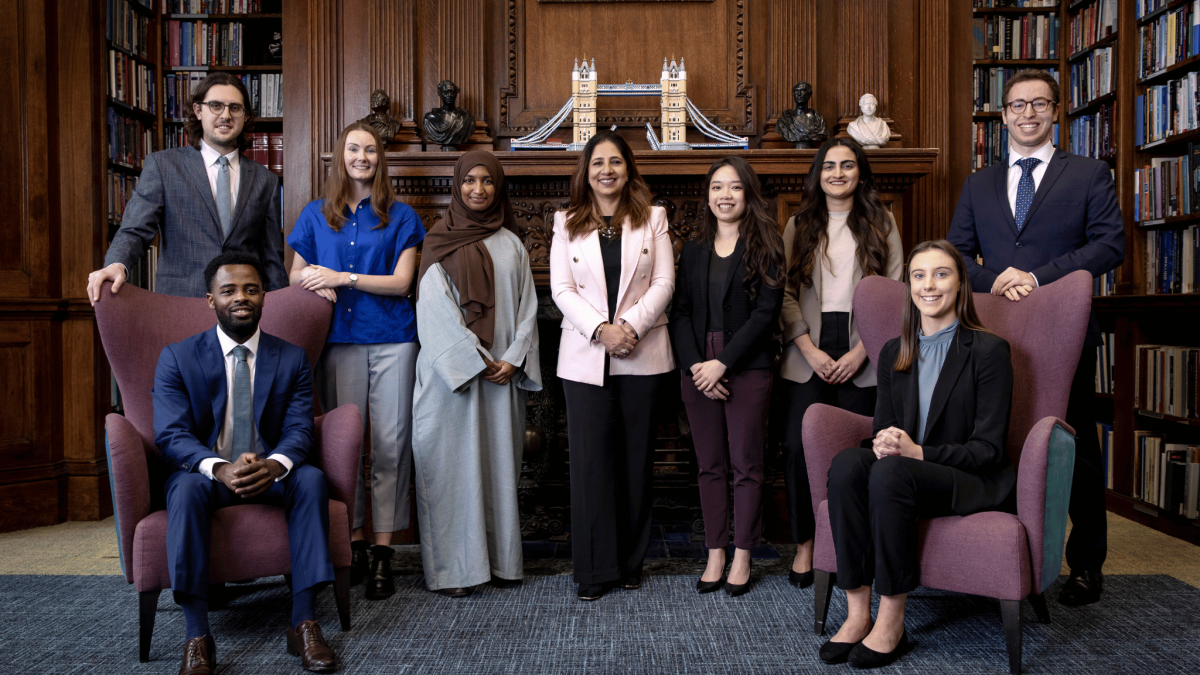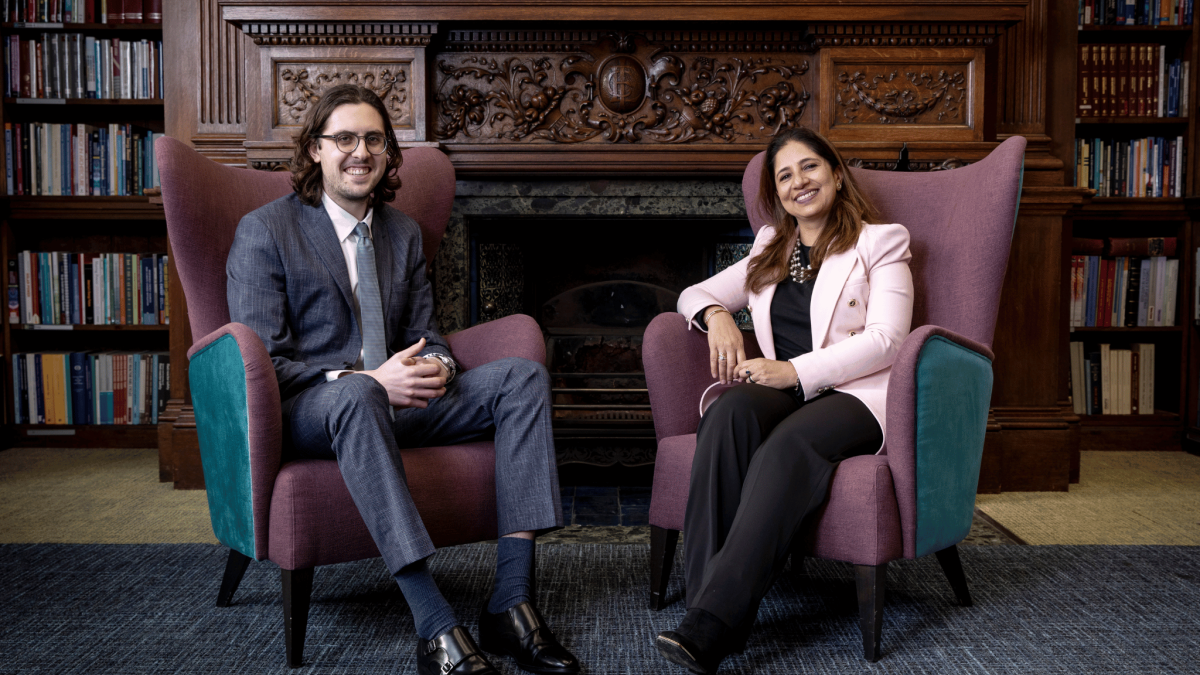Interview with Alexis Solomou
Alexis Solomou graduated from Surrey in 2022 with a masters in Civil Engineering. He now works as an Assistant Engineer at Arcadis and is one of the Institution of Civil Engineers (ICE)’s 23-24 Future Leaders.

Why did you choose to pursue civil engineering?
My family has a history of engineering - both my parents have an engineering degree and my grandad was the lead mechanic for a rally racing team.
How did you choose to study at Surrey?
I think what attracted me to Surrey was the ICE scholarship scheme. As well as funding while you study, it gives you security and a job when you finish studying. Surrey is also a nice location, very close to London.
Was it a big culture shock when you came over here from Cyprus?
I guess! The weather was obviously a shock, but also the fact that I finished high school, had a year in the army and then joined Surrey. I had the mindset shift from the army environment to university which brought different challenges. But it was great to see the English university system, Surrey had the students and their experience in mind, and lecturers were always looking for feedback from students on the modules.
Did you do a placement year while you were at Surrey?
Yes. In my first year I got the ICE scholarship and was matched with Arcadis, who were based in the Surrey Research Park. I ended up doing a summer placement there in my first year and did a full placement year with them again in my second year. After the second placement, I got an offer for a full-time job when I graduated and decided to move to London to be in a busier environment.
Doing a placement year was a no brainer. Because of my ICE Scholarship I didn’t have to go through the process of applying to lots of different places, doing assessments and getting anxious about it.
People apply to a hundred jobs and only get one reply, so sometimes you need to have a bit of luck. Especially in London where the market is so saturated – it doesn’t matter what time of year or how the economy is doing, if it’s in London there is so much competition for any role.
On top of that, doing a placement was very useful because I wasn't 100% sure what I wanted to do after university, whether I wanted to go into the highway, water or structural engineering specialisms, so the placement gave me the opportunity to explore and move teams. It gives you a year to think about what you want to do, get experience and also get paid throughout the year which is a big bonus.
A placement also means that when you graduate and go into a job, you don't start from zero, you start from something like 10%. You know the team, you know the company’s policies and processes, you know who's who. You can integrate much more easily into the team if you have already worked with them during your placement year, rather than going straight out of university into a new workplace. Without it, you can start work without knowing much about the professional environment and how to interact and behave. Its basic stuff, but so much easier if you have experience in an office environment before you start.
Could you share some important learnings you took from your time at Surrey?
University is hard! I know it sounds a bit cringey, but I learnt if you put the hours in you get the results. Even if you have a difficult module that is very technical and you feel like you don’t understand any of it, literally just put a bit of time into it and you’ll get a good result. Hard work, invest your time into your studies and don’t give up.
What's the most challenging and most rewarding parts about your job?
Currently I'm on a site as part of the project management team. The challenging thing is how busy you can get in a day. You need to be literally in fifteen different places at the same time, or fifteen things need your attention. So, the challenge is, how do you prioritise and communicate with your team and how can you efficiently manage your tasks and not get overwhelmed.
The rewarding bit is actually seeing something being built and being part of a site team. You have the designer, the contractor, the project manager and the client and see them collaborating on site and making progress every day. Witnessing your work being built is really rewarding. It motivates you more when you can see things coming together.
How is sustainability important to your work?
I think civil engineering has a big part to play in sustainability. Obviously the whole industry is trying to incorporate sustainability in their processes and you can actually see that happening now. People get sustainability on the agenda much earlier on every project and actually care about it. It's very important for us to properly consider these things, because as engineers as we have a direct responsibility in what we design and build and how we advise our clients or investors.
Obviously we can’t solve everything in an instant, but with good faith, talking about the issues and having sustainability on the agenda, we can drive the industry forward. Part of my ICE Future Leaders role is finding ways to communicate the importance of nature-based solutions to engineers and other professionals and encouraging them to think about nature and positive solutions.

How have you found your role as ICE Future Leader?
It's challenging in some ways as it’s an extra activity on top of work, but it’s very rewarding as the ICE scholarship aims to get us exposure to very senior figures in the industry, so we can talk to them and ask any questions. We’re also working on a project “Accelerate Nature” with Anusha Shah (ICE President and Surrey Alumna of the Year 2024), to develop a product and try and get the funding for it. Thanks to the future leader's scheme, we had the chance to speak to very senior people, which helps you see what your career could be like in ten or fifteen years' time. It’s been a great experience! I’m only two years into my career so it’s very early to have such great exposure to key players in our sector.
Also, two out of eight people on the scheme are from Surrey, and Anusha, the ICE President is also from Surrey which is nice.
Has the ICE scheme given you insight into what you'd like to do in future?
Yes, it gives you a very good perspective of where the industry is going because ICE is at the forefront of innovations in the civil engineering and built environment industry.
Meeting people who specialise in different areas definitely has an influence of what direction I want to follow. It can motivate you and get you excited about different topics.
Is there any advice you'd have for people looking to go into civil engineering?
It’s so strange, I’m only two years into my career and already people are asking for my advice!
Whatever you choose, be curious and proactive. When you get hired, no-one knows you so try and make a name for yourself by being good at your job and pushing for things to be done differently and better. Challenge everything because there’s always ways to improve efficiencies. Always be proactive, curious and push for innovation in your work.
Also don’t get discouraged too quickly because your professional development needs time. You need to put time in and not get discouraged by your first few projects on the job.
What's one of the most exciting projects you've worked on so far?
I think Hammersmith Bridge is the most exciting project I’ve worked on so far. Before this, I was working on smaller jobs and this is a bigger, more prestigious project as it's an almost 137-year-old bridge and we’re working on the stabilisation of it. It's an extremely unique project - we’re doing things that have never been done before. It’s a great project.

Is there anyone who has inspired you while you were at Surrey or in your career so far?
Anusha is very inspiring. She knows how to inspire people and how to motivate them, which is why she’s in the position of being the ICE President. She has a strong vision and really knows her leadership. She approaches things positively and it’s never question of “can it be done?”, but instead, “how can we do it?”.
I’d also say my Dad and his work ethic is more of a personal inspiration to me.
You can apply to the ICE scholarship scheme for 2024 here.
Find out more about ICE future leaders here.